Four reactions to AstraZeneca vaccine in Queensland leads to new warning
Four alarming reactions to the coronavirus vaccine in the past 48 hours have led health authorities to adjust the jab rollout.

Health authorities will delay providing the AstraZeneca vaccine to those who are sensitive to anaphylactic responses after four Queensland recipients had alarming allergic reactions to the jab in the last 48 hours.
Health Minister Yvette D’Ath said there will now be “precautionary measures” to advise those who are anaphylactic to delay getting the jab while those who proceed to get the vaccine who suffer from these conditions will be observed in hospitals afterwards.
“I want to reassure people that we have absolute confidence in our vaccines in Australia, as the Therapeutic Goods Administration has said all along, that there is a risk category there in relation to people who have allergic reactions,” she told reporters on Wednesday morning.
RELATED: Questions raised over AstraZeneca vaccine
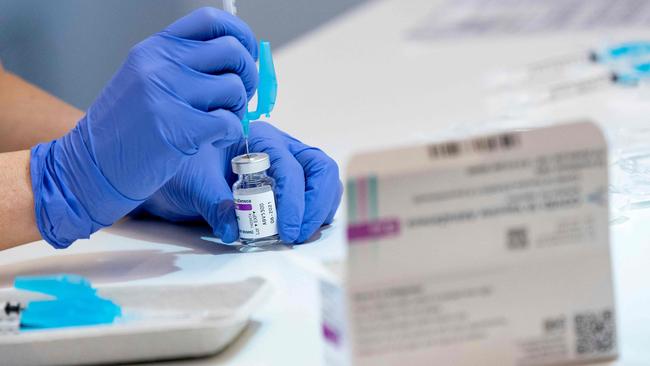
“We expected this, we are prepared for this but we do want to make sure because we are seeing a number of people react to the AstraZeneca that we are letting people know about that and monitoring them for a longer period to make sure that everyone is safe.”
The four cases to suffer the alarming response were shared between Ipswich, Toowoomba and Bundaberg, with all having a history of severe allergic reactions, according to Director-General Dr John Wakefield, and follows a number of European countries pausing the vaccine during an investigation into the safety of the jab.
“Our current policy and the national TGA policy on this is that it is fine for people to have the vaccination unless they have a history of anaphylaxis to products that are in the vaccine itself, so some of the components of the vaccine,” he said.
“That is the national guidance and I would remind everybody that there has been millions of doses. Millions of doses of AstraZeneca around the world, safely used. I will be getting my own when it's my turn.”
The nation’s chief health officers were in Canberra on Wednesday for a scheduled meeting about the virus and the vaccine rollout, where the issue of the reactions will also be discussed.
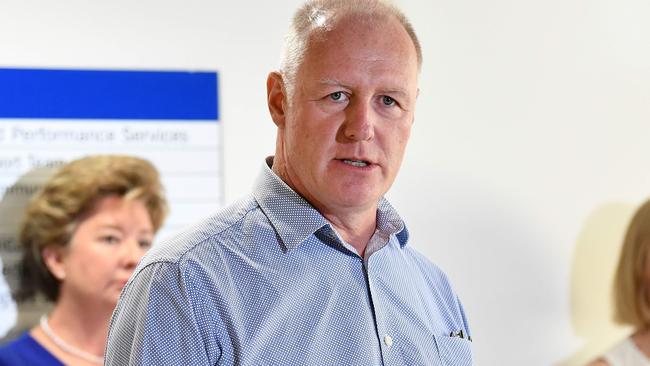
A recipient also had an allergic reaction to the Pfizer vaccine earlier in the rollout.
“The right thing for us to do is preserve the trust of Queenslanders and just add that extra blanket of safety, so it is nothing that anybody needs to have serious concerns about,” Dr Wakefield said.
“We are just making sure that we are cautious.”
The director-general said this jump in reactions comes after four weeks of vaccines being administered, following 10 million jabs provided in the United Kingdom.
“We expect with vaccinations that a small number of people, it is fairly rare but a small number of people will get anaphylaxis,” Dr Wakefield said. “That is not a surprise. We report them and treat them and so on.
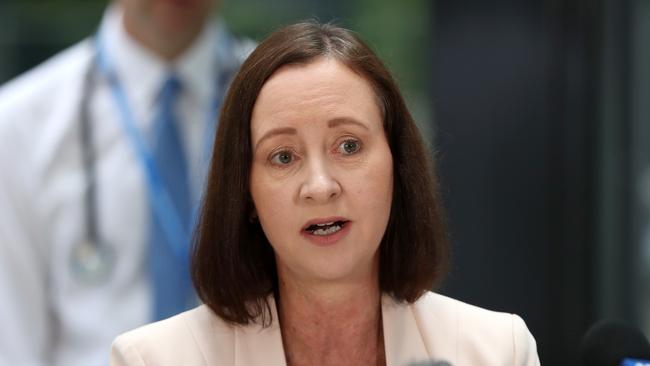
“The thing about this vaccination program is, nationally, if you are having the flu vaccine or any other type of vaccine and you have anaphylaxis, it is treated and you will never hear about it. Because there is so much focus on this, appropriately, on this vaccination, you are hearing about every single case that arises.
“So yes, we have had an anaphylaxis with Pfizer and we expect to get more.”
CHIEF MEDICAL OFFICER FIGHTS FEARS
Australia’s chief medical officer Brendan Murphy said reactions to any vaccine are not uncommon and that those giving the vaccine had adrenaline on hand and ready to administer in the case a patient suffers an adverse reaction.
“We know vaccines have an association with anaphylaxis,” he told reporters on Wednesday.
“One in 10 million people can have an anaphylactic reaction. There are components of vaccines that produce reactions.

“People with anaphylaxis will generally know they have had it in the past and should stay for 30 minutes rather than the recommended 15 minutes.
“Sometimes you do see a greater than what might be expected in incidence of reports, this will be investigated by the TGA, but there is, to my knowledge, no reason at all for concern.”
He said the anaphylactic reactions have been experienced following inoculations of the Pfizer vaccine and also the AstraZeneca vaccine and they were expected.
“We would expect to see anaphylaxis, and we would have adrenaline on hand and know how to manage the condition,” he said.
“We are confident the program should continue to go ahead as it has.
“I have had the AstraZeneca vaccine a week ago, more than a week ago, with Minister (Greg) Hunt, and I am very confident this is a very safe and very, very effective vaccine.”
Although the AstraZeneca vaccine was deemed safe, Mr Murphy said aged-care residents would in fact be receiving the Pfizer vaccine.
“Aged-care residents are getting Pfizer and it is ramping up.
“We gave the initial Pfizer to hotel and quarantine and border workers and we have now switched that around and the great majority of Pfizer is going into aged care.”
Overall, there have been 14 reactions to the Pzfizer vaccine and five following the AstraZeneca vaccine, said Therapeutic Goods Administration, deputy secretary Professor John Skerritt.
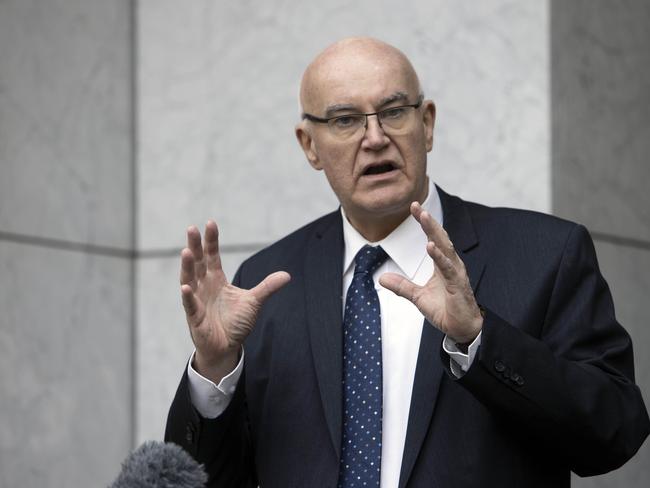
However, what was unusual but not alarming was the cluster of cases were in Queensland, he said.
“So there appears to have been a cluster in Queensland, then again clusters happen, and it's not necessarily something special about Queensland,” Mr Skerritt said.
He added that the vaccine batch had been tested in Australia and same batch has also been tested by the UK equivalent of the TGA and “there were no problems with it”.
“We have looked at that batch of vaccine which is use in Queensland is actually being administered across the country,” he said.
“They have physically tested samples of that batch and in parallel, the exact same batch has been tested at the UK equivalent of TGA .... and there were no problems with it.”
Health Minister Greg Hunt said GPs would start innoculations within 48 hours.
The daily number of patients to be adminintersted the vaccine would be determined by each private practice and consultations should be bulk-billed.
“Some practices have said they will take all people,” he said
TROUBLE IN EUROPE
The scare in the Sunshine State comes after a number of European nations suspended vaccination programs due to concerns over potential blood clotting issues with the AstraZeneca jab.
Ireland, the Netherlands, Germany, France, Spain and Italy paused the administering of the vaccine, while Italy and France have since resumed the rollout.
The abrupt decision came after Austria reported serious adverse effects in two cases, including a 49-year-old nurse who died of severe blood coagulation 10 days after receiving the shot.
A 60-year-old woman in Denmark also died after developing a blood clot, and there are also reports of a death and three hospitalisations relating to blood clots in Norway.
The pausing of the jab in Europe has led to Nationals Senator Matt Canavan calling on the Australian program to also be suspended and for an investigation to take place.
“I don’t think all the capitals of Europe have been overtaken by anti-vaccine zealots. There are obviously legitimate concerns here,” he told Sky News.
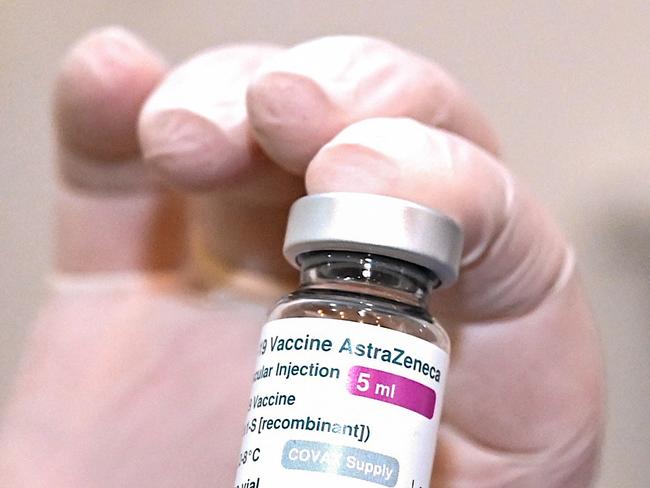
“Given that we are a country where there is not really an imminent threat of coronavirus, I just don’t see how the risk of the vaccine outweighs, or is better than, suspending right now.”
“I just don’t think we can close our eyes to this evidence. The end goal has to be the health and safety of Australians.”
But both the European Medical Authority (EMA) and the World Health Organisation (WHO) have said there’s no indication the vaccine developed with Oxford University caused blood clots.
“At present there is no indication that vaccination has caused these conditions, they have not come up in the clinical trials and they are not listed as known or expected side events with this vaccine,” EMA executive director Emer Cooke said, according to CNN.
“We are still firmly convinced that the benefits of the AstraZeneca vaccine in preventing COVID-19, with its associated risk of hospitalisation and death, outweigh these side effects.”
Meanwhile, WHO spokesperson Christian Lindmeier said there is “no evidence that the incidents are caused by the vaccine and it is important that vaccination campaigns continue so that we can save lives and stem severe disease from the virus”.
Queensland recorded zero new locally acquired cases on Wednesday but six were detected among overseas travellers in hotel quarantine.


